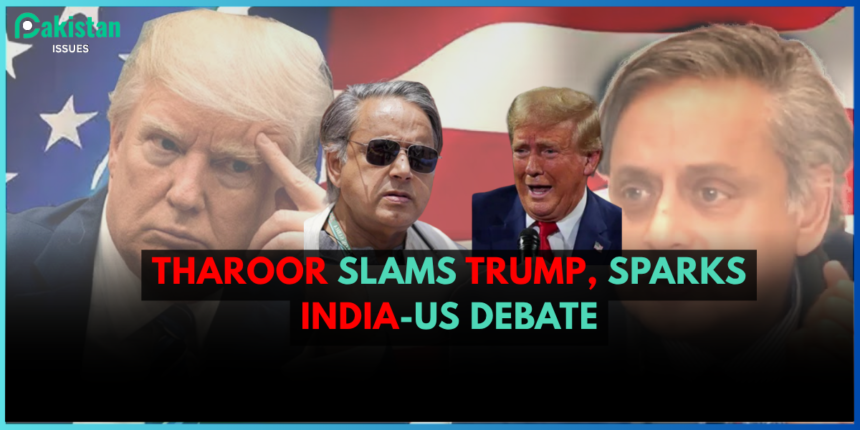NEW DELHI—If Shashi Tharoor wanted to grab Washington’s attention, he chose his moment well. Speaking at a university panel on trans-Atlantic politics late Monday, the former UN diplomat turned Congress MP tore into Donald Trump’s latest comments on immigration and trade, calling the former US president “a man with plenty of swagger but very little political foresight, at least where India is concerned.”
It wasn’t a casual jab. Trump, speaking in Iowa last week, had threatened to “re-look” at tariff concessions for countries he claimed were “using America’s open market and giving nothing back.” His example? India. Tharoor, never shy of a sharp phrase, framed those words as a direct diplomatic setback: “When a presumptive candidate for the White House singles us out, we can’t shrug it off as campaign banter. Investors listen, allies watch, rivals take notes.”
Why the sting matters now
With general elections looming in India and the US, Delhi’s foreign-policy establishment is living through a season of hedging. Modi’s government invested heavily in cultivating ties with both the previous Trump team and the current Biden administration. Trump’s warning, while not official policy, re-opens an old wound—America’s unpredictable swing between partnership and protectionism.
Tharoor argued that unpredictability hurts India more than tariffs themselves: “We can price a duty hike into our exports. What we can’t price is a sudden loss of trust.” The remark landed because it echoes a private worry among trade officials: contracts freeze when buyers fear tomorrow’s regulation will differ from today’s handshake.
Domestic reaction: applause and eye-rolls
Opposition benches cheered Tharoor’s flourish. Congress spokesperson Supriya Shrinate said the speech “laid bare the risks of personality-driven diplomacy.” BJP allies dismissed it as theatre. One ruling-party strategist, speaking off-record, asked, “Why lecture Trump from Delhi? Better to work back-channels in D.C. than score points on TV.” Still, even government insiders concede the optics are awkward—especially with India lobbying to finalise defence co-production deals before November.
A pattern of friction
Tharoor’s critique isn’t his first strike. In 2018 he warned that India’s over-reliance on the Trump White House could “leave us holding the baby” if Washington’s priorities shifted. Two years later, when Covid-related export bans pinched India’s pharma supply chain, his prediction looked prescient. Now, he says, the remedy is institutional depth, not personal chemistry. “Friendship photos don’t stabilise markets,” he told the Delhi audience. “Reliable rules do.”
What happens next?
Seasoned diplomats see three immediate tests:
- Trade talks – Can both sides ring-fence the mini-deal on critical minerals before campaign rhetoric escalates?
- Immigration caps – Will Trump’s proposal to tighten work-visa quotas gain traction among congressional Republicans?
- Defence supply lines – How much bipartisan support remains for tech-transfer clauses India wants written into future arms contracts?
None of those questions will be settled by a single speech. Yet Tharoor’s broadside forces Delhi to confront a bigger truth: when US politics turns inward, India’s margin for error shrinks.
Sipping tea after the event, the MP was asked if he feared backlash. He laughed. “I’ve spent thirty years in diplomacy—criticism is the easy part. Convincing people to think long term? That’s the real fight.”
Whether Washington heard him—or chooses to care—will shape the next chapter of India-US engagement more than any sound bite traded on a campaign podium.










